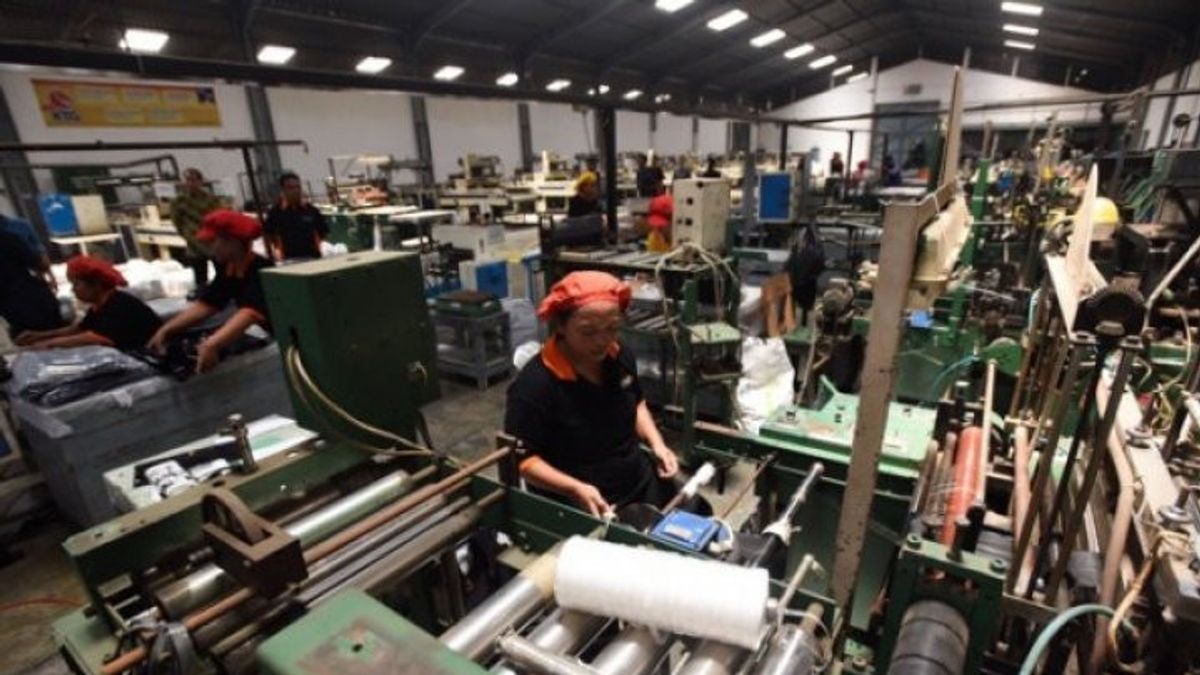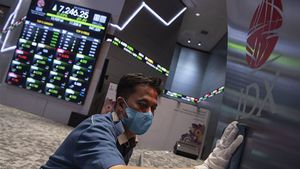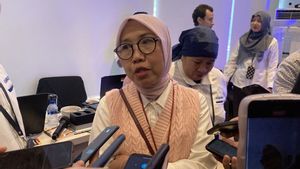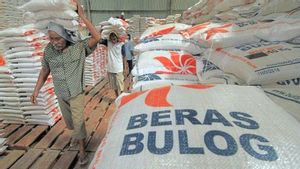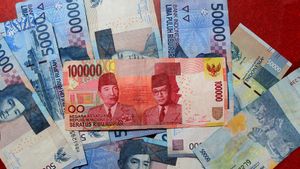JAKARTA - The Indonesian Olefin, Aromatic and Plastic Industry Association (INAPLAS) was also present at the The Fourth Session of the Intergovernmental Negotiating Committee to Develop an International Legally Binding Instrument (ILBI) on Plastic Pollution, Including in the Marine Environment (INC-4) on April 23 - 29, 2024 at Ottawa, Canada.
At the INC-4 forum organized by the United Nation Environment Program (UNEP) and attended by representatives from various countries, INAPLAS was present to support the efforts of the Government of Indonesia in overcoming plastic waste pollution in order to create a better and more sustainable environment. The Deputy Chairperson of INAPLAS, Edi Riva'i, explained that INAPLAS participated in reaffirming the association's commitment to help the Government of Indonesia overcome plastic waste management is still needed to complete it.
"INAPLAS is committed to jointly with all petrochemical industries in the country in solving plastic waste problems in Indonesia. Therefore, we will continue to collaborate with the government and various stakeholders to overcome this problem and provide innovative solutions," said Edi Riva..
Edi continued that efforts to overcome plastic waste pollution need to be carried out by competing with efforts to encourage national economic growth, one of which is done through investment in the domestic petrochemical sector to reduce dependence on imports.
INAPLAS data shows that Indonesia is still dependent on imported products to meet domestic plastic needs with a value of up to 11 billion US dollars per year. Through its members, INAPLAS is also developing the petrochemical industry with a value of up to USD 18 billion to release its dependence on imported products.
The Petrochemical industry itself has great market potential and strength in the progress of the Indonesian economy. The existence of the petrochemical industry as well as the metal and steel industry is often used as a benchmark for the level of progress of a country because it is a basis or support for various manufacturing industries.
The existence of the petrochemical industry is one of the pillars of the national industry that needs to be developed through strengthening structures from upstream (upstream) to downstream products (consumer goods) to meet domestic needs in the form of food, clothing, and clothing.
"Through this INC-4 agenda, INAPLAS hopes that Indonesia can manage national waste problems and remain in line with the increase in the national economy through investment growth in the petrochemical industry," said Edi Rivai.
The Director General of Waste Management, Waste and B3 (PSLB3) of the Ministry of Environment and Forestry, Rosa Vivien Ratnawati, in her role as a representative of the Coordinating Body on the Seas of East Asia (COBSEA) in the INC-4 said that the Indonesian government fully supports the formation of the international agreement as a form of international support in resolving environmental pollution caused by plastic pollution.
"The government also supports the implementation of the circular economy in the production of plastic, recycled plastics, and the creation of an environmentally friendly plastic industry," he explained.
In terms of implementing the circular economy, the Petrochemical Industry in Indonesia has created a variety of innovations in plastic waste management, such as converting plastic waste into pre-analytical oil, mixing paving blocks, mixing asphalt, to becoming raw material for Refuse-Derived Fuel (RDF). This is a real industrial effort to create environmental sustainability.
Meanwhile, on the occasion of a coordination meeting with the Indonesian Embassy in Ottawa, Canada, the Indonesian Ambassador to Canada, Daniel Tumpal S. Simanjuntak stated, in this INC-4 meeting, the Indonesian Government fully supports the formation of international agreements in overcoming problems with plastic waste pollution, encouraging the implementation of the circular economy, and recycling plastic packaging.
SEE ALSO:
"This needs to be done in line with the Government's efforts to support the growth and strengthening of the domestic petrochemical industry in order to reduce imports of raw materials as the backbone of the economy and downstream of the developed plastic industry. The petrochemical industry can also develop a large national-scale recycling industry," he explained.
According to Emmy Suryandari, Director of the Kimia Hilir and Pharmacy Industry of the Ministry of Industry's IKFT, the policies formulated need to be studied in depth by involving related agencies, such as the Ministry of Finance, the Coordinating Ministry for the Economy, and BKPM.
"We want domestic upstream and downstream industries to grow so that Indonesia is not only an imported net country that will have an impact on investment and the balance of the economy," he said.
The positive impacts obtained from the development of the petrochemical industry include: encouraging the growth of downstream industries, providing job opportunities with the potential for labor absorption of up to 3.2 million people, improving trade balance with substitution of imports of raw materials for plastic products, as well as a source of state foreign exchange.
The English, Chinese, Japanese, Arabic, and French versions are automatically generated by the AI. So there may still be inaccuracies in translating, please always see Indonesian as our main language. (system supported by DigitalSiber.id)
